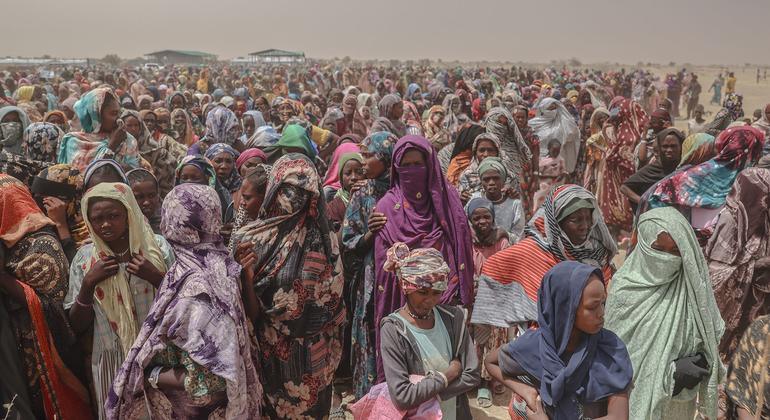“The current conflict and displacement, in addition to fragile health infrastructure and limited access to affected populations, have a risk of mass transmission of mass disease,” said the United Nations Health Agency in a report published on Tuesday, urging immediate support to maintain surveillance, strengthen the response to the epidemic and preserve the rescue health services.
Since the civil war broke out in April 2023, 14.5 million people were moved – 10.5 million internally and four million neighboring countries such as Egypt, South Sudan, Chad, Ethiopia, Libya and the Central African Republic – which makes it the largest crisis of movement in the world.
Within Sudan, the conflict devastated infrastructure and triggered the rupture of essential services and infrastructure, fueling the spread of cholera, measles and other transmitted diseases.
During the Tuesday press briefing in New York, the United Nations spokesperson Stéphane Dujarric, reported that with battles and bombings across the country, “the cholera epidemic in the state of Khartoum aggravates at an alarming rate”, the cases increasing by 80% in the last two weeks.
Mr. Dujarric called for “increased, flexible and appropriate funding to increase the humanitarian response, as well as unhindered access via all the necessary routes, so that Haid workers can reach people in need wherever they are.”
Disease and displacement
The impact extends far beyond the borders of Sudan. On May 7, Egypt received 1.5 million Sudanese refugees during the two years of fighting.
The country has widened health care coverage, but Sudanese faces higher costs within the framework of the universal health insurance system. The OMPT in Egypt works with the national authorities to strengthen health services and reach the most vulnerable.
However, while Sudanese refugees arrive in overcrowded refugee camps through the region, the situation is much darker.
Chad. A quick influx of Sudanese refugees leaves thousands of desperate needs
In Chad, where more than 726,000 arrived in four eastern provinces affected by the crisis already overwhelmed by other refugees, health needs are urgent.
Refugees are confronted with epidemics of malaria, measles, hepatitis E and severe acute malnutrition. There were 657,135 cases of malaria alone and 314 deaths across the country this year.
South Sudan has received more than 1.5 million people, including 352,000 Sudanese. But conflicts and attacks on health establishments in the host country have seriously hampered response efforts and exacerbated diseases.
Hunger and cholera are particularly worrying, with 7.7 million people faced with severe food insecurity, and more than 54,800 cases of cholera and 1,000 deaths since the end of September.
In progress that supports
Despite the crisis in growing funding and serious operational challenges, WHO and its partners continue to provide support.
These include the support of 136 nutritional stabilization centers, the delivery of medical supplies and consultations, cholera and effort treatment sites to rebuild damaged health infrastructures.
The agency has called for supported support to prevent the worsening of what is already one of the most serious humanitarian and public emergencies in the world today.




